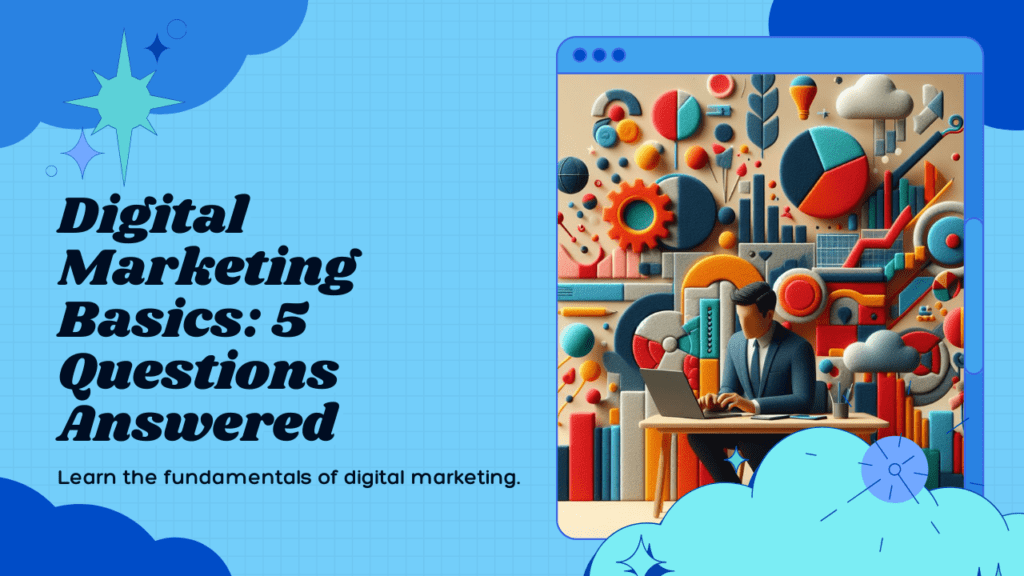## Introduction to Analytics in Digital Marketing
Analytics and data insights play a crucial role. In shaping successful digital marketing strategies. Marketers should use the right tools and techniques. Then, they can identify trends, track performance, and maximize ROI. Let’s explore the importance of data in decision-making. The evolution of analytics in marketing. Also, key metrics to measure in digital marketing.
We can also consider some noteworthy facts. About 3 out of every 4 marketing leaders surveyed (76%) base their decisions on data analytics. Thirty-two per cent of marketers pointed out marketing analytics and competitive insights. As the most important factor. That supports their marketing strategies over the last 18 months. (Source: Marketing Evolution)
### Importance of Analytics and Data Insights in Digital Marketing
In today’s information age, data is the backbone of effective marketing strategies. Marketers rely on data to understand consumer behaviour. Track campaign performance, and make informed decisions. By analysing data, businesses can enhance their marketing strategies. Optimise it. That leads to higher engagement, conversions, and ultimately, revenue.
For example, we can scan some information. A one-second delay in page load time can result in a 7% decrease in conversions. Speed matters! (Source: WE MAKE WEBSITES).
Over 50% of web traffic now comes from mobile devices. So, ensuring your website’s mobile friendliness is important! (Source: CareerFoundry).
### Evolution of Analytics in Marketing
The field of analytics has come a long way in marketing. From basic website traffic metrics to advanced predictive modelling. Analytics has evolved to provide marketers with deep insights into their target audience. With the rise of big data and machine learning, marketers now have access to more sophisticated tools. For data analysis and decision-making.
### Key Metrics to Measure in Digital Marketing
When it comes to digital marketing, there are several key metrics. That marketers should track to evaluate the success of their campaigns. These metrics involve website traffic, conversion rates, and click-through rates. Bounce rates, social media engagement, as well as email open rates. By tracking these metrics, marketers can pinpoint areas for development. Also, optimise their marketing strategies for better results.
## Tools and Techniques for Data Analysis
Marketers need to effectively analyse data in digital marketing. So, they have to utilize the right tools and techniques. Let’s explore some of the key tools available for data analysis. Involving Google Analytics, Social Media Analytics, as well as Email Marketing Analytics.
### Google Analytics: A Comprehensive Overview
Google Analytics is a powerful tool. Offers valuable insights into website traffic, user behaviour, as well as conversion rates. Marketers can monitor key metrics. For example, traffic sources, page views, bounce rates, and goal completions. To evaluate the effectiveness of their marketing campaigns.
### Social Media Analytics: Understanding Customer Engagement
Social media analytics help marketers track engagement metrics. Such as likes, shares, comments, and clicks. By analysing social media data, marketers can understand how their audience interacts. With their content. Then, they can tailor their social media strategy for maximum impact.
### Email Marketing Analytics: Maximizing Campaign Performance
Email marketing analytics allow marketers to track open rates. Also, click-through rates, conversion rates, and more. By analyzing email data, marketers can identify which campaigns are most effective. Then, can optimize their email marketing strategy for better results.–
For example, we can check some statistics. This gives insight into Email Effectiveness. The average email open rate across industries is around 20%, while the click-through rate hovers at 2.5%. Aiming for better engagement is necessary.
## Utilizing Data Insights for Targeted Marketing
Data insights can help marketers target their audience more effectively. By personalizing messages, segmenting audiences, and conducting A/B testing. To improve conversion rates.
### Personalization: Tailoring Marketing Messages to Individuals
Personalization is key to effective marketing. By leveraging data insights, marketers can tailor their messages to individual preferences. Increase engagement and conversions. Personalized marketing messages resonate more with consumers. Help build long-lasting relationships with customers.
### Segmenting Audiences for Effective Campaigns
Marketers segment audiences based on demographics, behaviour, or interests. It allows them to create targeted campaigns. That resonates with specific customer segments. By analysing data and segmenting audiences, marketers can deliver more relevant, personalized content. To engage their target audience more effectively, resulting in higher conversions.
### A/B Testing: Improving Conversion Rates through Data Analysis
A/B testing involves testing two forms of a marketing campaign. To see which performs better. They analyse the results of A/B tests. In this way, marketers can identify the most effective messaging, design, or calls to action. To improve conversion rates and optimise their marketing campaigns.
## Maximizing ROI with Data-Driven Strategies
To maximize ROI in digital marketing, marketers need to identify profitable marketing channels. Set SMART goals based on data insights. Always optimize their strategies for lasting success.
### Identifying Profitable Marketing Channels
Marketers analyse data on marketing channels. In this way, they can identify important channels. Driving the most traffic as well as conversions. Focusing their efforts on profitable channels can also maximize ROI. Allocate their budget more effectively.
### Setting SMART Goals Based on Data Insights
SMART goals are specific, measurable, achievable, relevant, and time-bound. By setting SMART goals based on data insights, marketers can track their progress. Measure the success of their marketing campaigns. SMART goals help marketers stay focused, motivated, and accountable for their results.
### Continuous Optimization for Long-Term Success
Online marketing is a constant practice that involves non-stop optimisation. Marketers analyse data, monitor performance, and make data-driven decisions. They can fine-tune their strategies for long-term success through this. Continuous optimisation warrants marketing works to remain productive. Keeping them relevant and competitive in today’s fast-changing technology and consumer behaviour.
## Challenges and Future Trends in Data Analytics
Despite the benefits of data analytics in marketing, there are challenges. These challenges include data privacy concerns and the need for advanced analytical skills. Adapting to rapidly evolving technology and changing consumer behaviour. Marketers must also embrace future trends. Leveraging technologies like artificial intelligence and predictive analytics to stay competitive.
### Privacy Concerns in Data Collection
Data collection has become more prevalent in marketing. So, concerns about privacy and data security are on the rise. Marketers must prioritize data privacy and compliance. To build trust with consumers and protect their data from misuse or breaches.
### Embracing Artificial Intelligence for Advanced Insights
Artificial intelligence is revolutionizing data analytics in marketing. AI-powered tools can analyse huge amounts of information. Identify patterns, and predict consumer behaviour with unprecedented accuracy. Marketers can use AI to get more insights. Automate tasks, and optimize their marketing strategies for better results.
### Predictive Analytics: Forecasting Consumer Behaviour
Predictive analytics utilises historical data as well as machine learning algorithms. To forecast future trends and consumer behaviour. By analysing data patterns and trends, marketers can make predictions. About customer preferences, purchasing behaviour, and market trends. Predictive analytics aids marketers in staying ahead. Enabling informed decisions that develop business.
## Summary
Analytics and data insights are essential components in successful digital marketing strategies. You must utilise the right tools and techniques for data analysis. Then, can track performance, identify trends, and maximize ROI. It is crucial for marketers to make data-driven decisions. Continuously optimize their strategies, and stay informed about industry trends. To thrive in today’s competitive landscape.



